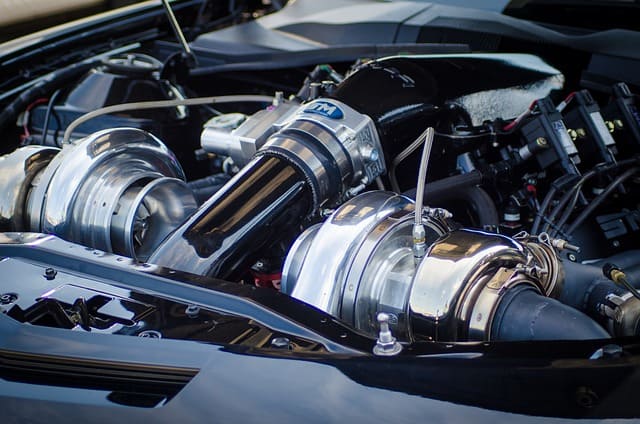Wondering why the automotive industry is obsessed with turbocharged, gasoline-direct-injection (T-GDI) engines? The answer is simple. These technologies have set new standards for engine performance and fuel efficiency. Turbocharging significantly increases power output without enlarging engine size, making your vehicle more efficient. Gasoline-direct-injection, on the other hand, enhances fuel efficiency and cuts down emissions. Nowadays, the majority of new vehicles integrate these features to meet tough environmental regulations and consumer demands. Knowing the best engine oil for turbo engines is crucial for maintaining their peak performance.
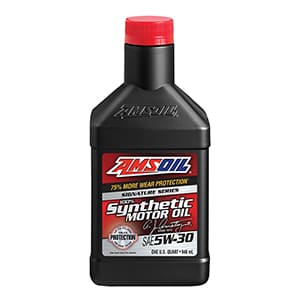
Why Engines Have Evolved: Key Factors Explained
You might be curious about the fate of the older engines we’ve depended on for many years. The key issue lies in the Corporate Average Fuel Economy (CAFE) standards. Established in the 1970s, these standards mandate that each car manufacturer’s entire range of vehicles must meet a minimum average fuel efficiency. If a manufacturer fails to meet this requirement, they face substantial financial penalties. These regulations were implemented to decrease fuel consumption and improve air quality, thus compelling manufacturers to innovate and produce more efficient engines. For example, today’s engines are significantly more fuel-efficient and emit fewer pollutants compared to those from previous decades. The shift away from older engines is a direct response to these stringent regulations, prompting continuous technological advancements in the automotive industry. While some argue that the transition imposes significant costs on manufacturers, the long-term benefits for the environment and public health are considerable. Moreover, fuel-efficient vehicles can offer savings to consumers over time, further justifying the shift mandated by CAFE standards.
Over the years, the minimum fuel economy requirements have steadily increased and are expected to reach approximately 40 miles per gallon by 2026. This follows the Trump administration’s recent decision to roll back stricter standards set during the Obama era. Car manufacturers are now focusing on achieving this ambitious target by employing cutting-edge technologies. They are incorporating advanced features like turbochargers, which enhance engine efficiency and power, and direct fuel injection systems, which improve fuel combustion and overall performance.
These technologies aren’t just add-ons; they’re integral to the vehicle’s design and function. For instance, turbochargers compress the air entering the engine, allowing for more fuel to be burned more efficiently, hence producing more power from smaller engines. This results in better fuel economy and lower emissions. On the other hand, direct fuel injection systems deliver fuel directly into the combustion chamber, ensuring a more precise fuel-air mixture, which maximizes combustion efficiency and reduces waste.
Additionally, manufacturers are exploring lightweight materials such as aluminum and high-strength steel, which contribute to overall fuel efficiency by reducing the vehicle’s weight without compromising safety. Hybrid and electric drivetrains are also being increasingly adopted as they offer significant fuel savings and lower environmental impact.
These innovations not only help vehicles achieve higher fuel efficiency but also ensure that the driving experience and safety are not compromised. Critics may argue that these technologies raise the cost of vehicles, but the long-term savings on fuel and the environmental benefits outweigh the initial investment. Thus, the automotive industry is on a clear path to meet the stringent fuel economy standards set for the near future.
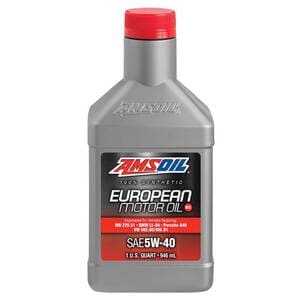
Understanding Turbochargers: The Basics and Benefits
Curious about how a turbo can make your car more fuel-efficient? Let’s break it down in detail. A turbo functions as an air compressor driven by exhaust gases. These gases spin a turbine that draws air through the intake and forces it into the combustion chamber. This infusion of extra air, rich in oxygen, optimizes the combustion process, resulting in more horsepower and better fuel economy.
To understand this better, consider the role of oxygen in combustion. More oxygen allows for a more thorough and efficient burn of the fuel, generating more power without needing extra fuel. Essentially, you’re getting more energy output from the same amount of fuel. This enhanced combustion efficiency translates directly into improved fuel mileage, making turbocharged engines particularly appealing for both performance enthusiasts and environmentally conscious drivers.
From a driver’s perspective, turbos seem like the ideal solution: they provide increased power and reduced fuel consumption. However, it’s important to consider potential downsides. For instance, turbos can be more complex and therefore more prone to mechanical issues. They may also impose higher maintenance costs over the lifetime of the vehicle.
Thus, while turbos offer significant advantages in terms of performance and efficiency, it’s crucial to weigh these benefits against the possible drawbacks. Understanding the technology and its implications can help you make a more informed decision about whether a turbocharged engine is the right choice for your driving needs.
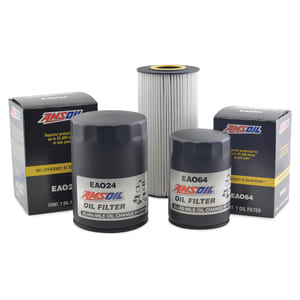
Mitigating Turbo Heat: Best Practices for Car Enthusiasts
Imagine this: a turbocharger can spin at astonishing speeds of up to 300,000 revolutions per minute (rpm). To put this into perspective, most modern car engines redline around 6,000 rpm. This means your turbo is rotating up to 50 times faster than the engine itself. Moreover, the exhaust gases powering the turbocharger can reach temperatures exceeding 1,000°F (538ºC). Such extreme speed and intense heat can lead to the formation of deposits known as turbo coking. These carbon-based deposits can gradually accumulate within the turbo, causing efficiency losses and, if left unchecked, can ultimately result in turbocharger failure.
Turbo coking occurs when carbon particles are left behind from the oil or fuel that hasn’t fully combusted. Over time, these particles adhere to the turbine’s internal surfaces, restricting airflow and increasing friction. This buildup not only hampers performance but also puts additional strain on the turbo’s moving parts, accelerating wear and tear.
Given this, regular maintenance is crucial. Turbochargers need high-quality oil specifically formulated to withstand high temperatures and resist oxidation. Using subpar oil can exacerbate coking and hasten turbo wear. It’s also essential to follow manufacturer-recommended oil change intervals and allow the engine to cool down properly after intense driving.
In some cases, turbo failure can be misdiagnosed as engine trouble, leading to unnecessary repairs. Proper diagnostics can isolate turbo issues early, preventing more extensive damage. By understanding the importance of turbo maintenance and using the right products, you can ensure your turbocharger operates at peak efficiency, prolonging its lifespan and maintaining optimal engine performance.
Essential Tips for Selecting Oil for Turbocharged Vehicles
Engine oil is crucial for both lubricating and cooling your turbocharger, making the choice of high-quality oil for your turbocharged vehicle essential. Using a premium synthetic oil like AMSOIL Signature Series Synthetic Motor Oil is highly advised, as it significantly reduces deposit buildup on turbo spindles. This practice not only ensures peak performance but also prolongs the turbocharger’s lifespan. AMSOIL Signature Series, for example, provides 72% superior protection for turbos compared to the GM dexos1 Gen 2 standard.
The oil’s advanced formula resists thermal breakdown and maintains viscosity even under extreme conditions, protecting turbocharger components from wear and tear. Thermal breakdown can lead to inefficient lubrication, which increases friction and accelerates component degradation. By investing in a superior oil, you ensure consistent lubrication and cooling, which are critical for the turbo’s efficient operation. Moreover, AMSOIL Signature Series helps prevent oxidation and sludge formation, which can clog oil passages and impair turbo functionality.
Choosing a high-quality oil isn’t just a matter of preference; it has tangible benefits. While some may argue that synthetic oils are more costly, the investment pays off by reducing maintenance costs and extending the life of your vehicle’s turbo system. In the long run, you’re safeguarding your vehicle against potential failures and ensuring that it performs at its best.
The circulating oil not only cools the turbo efficiently but also significantly reduces the buildup of performance-robbing deposits that can form over time. These deposits, often resulting from inadequate lubrication or excessive heat, can obstruct the turbo’s components and impair its functionality. By ensuring a steady and optimal flow of oil at the right temperature, the system effectively prevents these issues, thereby maintaining the turbo’s peak performance. This meticulous management of oil flow and temperature not only supports immediate efficiency but also extends the overall lifespan of the turbo, ensuring reliable long-term operation.
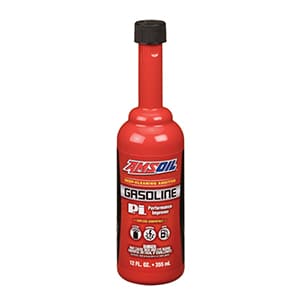
How Gasoline Direct Injection Improves Fuel Efficiency
Automakers are increasingly adopting gasoline direct injection (GDI) technology. Nearly every manufacturer now incorporates GDI in some form. In traditional port-fuel-injected engines, fuel injectors are located in the intake manifold, where the air-fuel mixture is prepared before entering the combustion chamber. In contrast, GDI engines position the fuel injectors directly within the combustion chamber itself, allowing for a more precise fuel delivery. This placement enhances fuel atomization, leading to improved combustion efficiency, lower emissions, and better fuel economy. While some argue that GDI systems are more complex and potentially more prone to issues like carbon buildup, the benefits often outweigh these challenges.
By doing this, you enable car manufacturers to precisely manage the timing of fuel injection, allowing for multiple injections during a single piston stroke. This level of control permits the computer to set the air/fuel mixture to ratios as lean as 50:1 in specific driving conditions, a stark contrast to the conventional 14.7:1 ratio found in port-fuel-injected engines. By achieving a leaner air/fuel ratio, the system reduces the amount of fuel burned during each cycle, which significantly boosts fuel efficiency.
Moreover, the improved accuracy in fuel injection timing and mixture composition directly translates to enhanced engine performance and reduced fuel consumption. For instance, the ability to fine-tune the mixture according to various driving scenarios means the engine can operate more efficiently across a wider range of conditions, whether it’s idling in traffic or accelerating on the highway.
Furthermore, achieving such lean mixtures isn’t just about saving fuel. It also contributes to lower emissions by reducing the production of pollutants like carbon monoxide and nitrogen oxides, which are prevalent in richer fuel mixtures. This reduction in harmful emissions meets stringent environmental regulations and supports global efforts to combat air pollution and climate change.
Critics might argue that leaner mixtures could potentially lead to engine knocking or increased wear and tear. However, modern engines equipped with advanced sensors and real-time monitoring systems can mitigate these risks, ensuring reliable and efficient operation. Thus, this technology not only optimizes fuel efficiency but also addresses critical environmental concerns, making it a comprehensive solution for today’s automotive industry.
How High Pressure Gasoline Direct Injection Improves Fuel Efficiency
GDI engines are equipped with a high-pressure fuel pump capable of reaching fuel pressures as high as 2,000 psi. In stark contrast, port-fuel-injected engines typically operate at much lower pressures, around 40 psi. The elevated fuel pressure in GDI systems is essential for enhancing engine performance. It aids in cooling the cylinder, which helps prevent knocking and allows for higher compression ratios. Additionally, it improves fuel atomization, leading to finer fuel droplets. This finer atomization results in a more efficient air-fuel mixture, facilitating more complete combustion.
This improved combustion efficiency not only boosts engine performance but also contributes to better fuel economy and significantly lower emissions. For instance, the more complete combustion means fewer unburned hydrocarbons and carbon monoxide, which are major pollutants. Despite these advantages, some critics argue that higher pressure systems could lead to increased wear and tear on engine components and a higher likelihood of carbon build-up on intake valves. However, advances in materials and engine design continue to mitigate these concerns, making GDI systems a leading technology in modern automotive engineering. These attributes collectively make GDI systems a more efficient and environmentally friendly choice for today’s vehicles.

Understanding Fuel Dilution in GDI Engines: Causes and Effects
GDI, while offering notable advantages for drivers through its enhanced fuel efficiency and superior performance, is not without its challenges. With the fuel injectors located inside the combustion chamber, there’s a risk that the excess fuel spray can hit the cylinder wall. This situation allows fuel to seep past the piston rings and mix with the engine oil, potentially causing oil contamination. Such contamination negatively impacts engine lubrication and can reduce the lifespan of engine components. This issue is particularly concerning as proper engine lubrication is critical for maintaining the smooth functioning and durability of the engine.
To address this concern, automakers are continuously refining piston designs to ensure that fuel remains restricted to the combustion chamber. They aim to improve fuel combustion efficiency while minimizing the issue of fuel dilution in the engine oil. Enhanced piston designs often incorporate advanced materials and innovative geometries to prevent fuel from escaping and mixing with the oil. Additionally, manufacturers are exploring advancements in injector technology to achieve a more precise fuel spray pattern, reducing the likelihood of cylinder wall wetting.
Despite these efforts, the challenge remains significant. Opponents argue that these complexities add to the maintenance costs for the consumer and may require more frequent oil changes. However, the ongoing development in GDI technology seeks to balance performance gains with long-term engine reliability. By continuously improving these systems, automakers strive to extend engine life and maintain optimal performance, ultimately providing a better driving experience while addressing potential technical issues.
Understanding the Formation of Intake-Valve Deposits in GDI Engines
One significant drawback of Gasoline Direct Injection (GDI) engines is the accumulation of deposits on intake valves. In engines using port fuel injection, the fuel, which contains detergents, flows over the intake valves, keeping them clean through continuous washing. However, in GDI engines, the fuel is injected directly into the combustion chamber, bypassing the intake valves entirely. This absence of fuel flow over the valves leads to the buildup of carbon deposits on these components. Over time, these deposits can cause the valves to lose their ability to seal correctly, which leads to a series of performance issues. When the valves don’t seal properly, unburnt air-fuel mixtures can escape, reducing engine performance and causing misfires.
Moreover, the engine’s fuel efficiency diminishes because the system compensates for the reduced power output by consuming more fuel. While some argue that regular maintenance, such as walnut shell blasting or chemical cleaning, can mitigate these effects, the intrinsic design of GDI engines makes them more susceptible to this problem compared to their port fuel injection counterparts. This susceptibility is due to the direct injection method, which provides no cleaning action to the intake valves.
It’s essential for manufacturers and consumers to recognize this issue and consider the long-term implications of deposit accumulation on engine durability and efficiency. Understanding these factors can help inform choices about engine types and maintenance schedules, ultimately influencing the longevity and performance of the vehicle.
Maintaining Turbo Direct-Injected Engines: Essential Motor Oils and Fuel Treatments
Consistently performing routine maintenance and using a high-quality motor oil like AMSOIL synthetic, along with a dependable oil filter, can often prevent issues with your turbo or fuel injectors. This practice helps keep these components in optimal working order, thereby reducing the risk of costly repairs. It’s also beneficial to clean the injectors regularly and ensure they function efficiently by using a potent fuel additive such as AMSOIL P.I.® Performance Improver Gasoline Additive This additive not only cleans the injectors but also enhances their performance, leading to smoother engine operation.

To sustain the benefits provided by AMSOIL P.I.® Performance Improver Gasoline Additive, it’s important to continue using AMSOIL Upper Cylinder Lubricant Corrosion Inhibitor. This product significantly enhances lubricity, which is crucial for preserving horsepower and improving overall fuel efficiency. By maintaining good lubricity, you ensure that the engine components experience less wear and tear, thereby extending the engine’s lifespan. Additionally, the combination of AMSOIL synthetic motor oil and regular use of AMSOIL P.I.® Performance Improver Gasoline Additive and AMSOIL Upper Cylinder Lubricant Corrosion Inhibitor can help maintain fuel injectors and turbochargers, optimizing engine performance and longevity.
In conclusion, consistent use of these AMSOIL products, combined with regular maintenance, can greatly contribute to the long-term health and efficiency of your vehicle’s engine components. Proper care and quality products are essential in preventing mechanical failures and ensuring your engine operates smoothly for years to come.
Low-Speed Pre-Ignition: Causes, Effects, and Solutions
When these technologies come together, they can trigger a notable and unusual combustion event known as low-speed pre-ignition (LSPI). LSPI is significantly affecting the lubrication industry, pushing oil manufacturers to reformulate their motor oils to effectively counter this phenomenon. These reformulations are crucial for car manufacturers to fully harness the enhanced fuel efficiency provided by turbocharged gasoline direct injection (T-GDI) engines. LSPI isn’t just an internal concern for engineers; it has broader implications for the entire automotive sector. This issue demands a reevaluation of industry standards and practices to ensure that engine performance and longevity aren’t compromised. Beyond the technical challenges, LSPI also necessitates educating consumers and mechanics about the importance of using proper lubricants, which are specifically designed to reduce this risk. Consequently, the industry must innovate continuously to keep up with the evolving demands of modern engines while maintaining stringent safety and performance standards.
We’re thrilled to announce that AMSOIL synthetic motor oils have excelled in providing full protection against Low-Speed Pre-Ignition (LSPI) during the rigorous engine tests mandated for the GM dexos1 Gen 2 specification. LSPI is a significant concern in today’s turbocharged engines, often leading to severe damage and increased maintenance costs. Our motor oils have not just met but surpassed these rigorous standards, showcasing their advanced formulation specifically engineered to tackle LSPI head-on.
Let’s break down why this matters. Modern engines, especially those with turbochargers, are vulnerable to LSPI, an unpredictable combustion event that can cause catastrophic damage. By passing these stringent tests, AMSOIL oils demonstrate their ability to combat this issue effectively. This achievement highlights the superior performance of our products and assures drivers of enhanced reliability and durability, even in the most demanding driving conditions.

Moreover, eliminating LSPI-related risks means engines can operate smoothly and efficiently for longer periods. This translates to fewer breakdowns, reduced repair costs, and extended vehicle lifespans. Car owners can now enjoy peace of mind, knowing their engines are protected by a lubricant that doesn’t just meet industry standards but sets a new benchmark in engine protection.
In a market filled with claims, AMSOIL stands out with proven results, offering not just performance but also a promise of long-term engine health.
Embrace the advancements in modern engine technology and enjoy the benefits of enhanced performance and fuel efficiency. Today’s engines are designed with precision and complexity, offering unparalleled power and responsiveness. With these improvements, it’s crucial to feel assured that AMSOIL synthetic lubricants deliver the superior protection necessary to fully exploit the capabilities of these sophisticated engines. These lubricants are specifically engineered to minimize wear and tear by forming a durable barrier, reduce friction to ensure smoother operation, and extend engine life, allowing you to get the best out of your vehicle over the long haul.
Why AMSOIL is the Best Choice for Turbo Engines
In a world where engine components are more demanding, AMSOIL’s synthetic lubricants offer unmatched reliability. They are formulated to withstand extreme temperatures and pressures, unlike conventional oils that may falter under high-stress conditions. This not only prevents potential engine damage but also enhances fuel economy by reducing friction. For those seeking the best engine oil for turbo engines, AMSOIL is a wise choice, ensuring your engine runs cleaner, performs optimally, and lasts longer.

